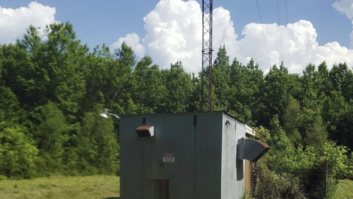The number of broadcast voices asking for an EAS CAP extension is turning into a chorus.
We’ve reported that several groups, including NAB and all 50 state broadcast associations, asked the FCC to delay the date by which stations need to have a Common Alerting protocol-compliant EAS encoder/decoder installed. They asked for at least a six-month extension from the current Sept. 30 deadline.
Now, those groups, plus NPR, the Broadcast Warning Working Group, Association of Public Television Stations, Public Broadcasting Service, National Cable and Telecommunications Association and the American Cable Association, are all saying the same thing — together.
In a petition filed with the FCC, they jointly ask for an expedited extension, saying more time is warranted to comply with CAP-EAS given the uncertainty that remains regarding CAP compliance.
They note that the commission hasn’t decided whether it will conduct its own EAS equipment certification in addition to the certification being done by FEMA. The broadcasters also reiterate that the commission is still considering changes to its Part 11 rules governing the EAS that may affect the purchase, installation and operation of new EAS equipment.
Another extension, according to the broadcasters, would allow participants in the scheduled Nov. 9 national EAS test to focus their limited engineering resources on ensuring the success of the nationwide test. That test focuses on legacy EAS.
Not everyone supports another extension though.
We’ve reported that equipment manufacturers are split on the issue; EAS equipment manufacturer Sage Alerting Systems opposes extending the six-month deadline but also floated a compromise, suggesting that the FCC keep the current deadline but allow EAS participants to have “90 days (or Dec. 31, 2011, whichever is later), to actually begin receiving messages from the IPAWS server, and 90 days after a state plan is approved by the FCC to begin receiving state messages.”
Gorman-Redlich favors extending the equipment installation deadline by 18 months while Monroe Electronics believes the current deadline is sufficient.
The new broadcast petition is one of several comments filed to Docket 04-296. The deadline is Aug. 4 to file reply comments on the commission’s Third Further Notice regarding changes to its Part 11 rules.











